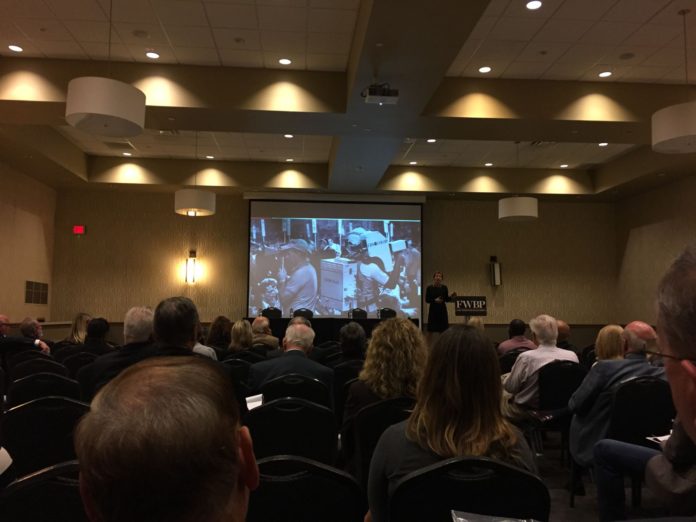The new age of media – especially on television talk shows – is like the wild West. People talk over and at each other and no one is listening or hearing.
That has to change, said Christy Tanner, senior vice president and general manager of CBS News Digital, speaking at the Fort Worth Business Press’ annual Meet the Editors event on Oct. 2.
Tanner cited the top five lessons that CBS has learned over the past three years since the birth of CBSN, CBS News’ 24/7 digital streaming news service.
“This is really the wild West of media and the news space right now,” she stated. In addition to CBSN, Tanner also brought up CBS All Access, which it the network’s streaming home for its entertainment programming, available as a subscription service.
“The big lesson for me is that we, as a media industry, must change,” Tanner said.
There was no disagreement among other presenters at the event – FWBP President and Publisher Richard L. Connor, FWBP Editor Robert Francis and Associate Editor Paul Harral.
Newsrooms are shrinking in the face of changing business models in the industry, Connor said. With social media and other platforms available, media companies have the potential “to report, spread news with more people than ever before and we have fewer professionals.”
Audiences for traditional news outlets are also aging, but Tanner said that the experience at CBS shows a hopeful sign.
She said CBSN viewers have an average age of 38, while broadcast cable news viewers’ average age ranges from 58-68.
“There are complexities to how government works and how it is involved, but we have trained our audiences to have shorter and shorter attention spans,” Tanner said.
Audiences can self-select if they wish and never be confronted with a contrary view, she said, allowing people to live in their own physical and virtual bubbles.
“Real news is fighting to get through filters,” Tanner said.
The 2017 Edelman Trust Barometer indicated the lack of trust in not only the news media but also in other institutions. (The survey was done by research firm Edelman Intelligence and consisted of online interviews conducted Oct. 13-Nov. 16, 2016, with respondents in the United States and abroad.)
The survey found that those who responded said that they trusted “a person like yourself” as much as they trusted a technical or an academic expert.
But Tanner noted a significant trend among CBSN viewers.
Nationally, viewers rated their reasons for using a news or information service: 15 percent chose it for immediacy, 34 percent for catching up and 27 percent for knowledge. The CBSN figures in the first two categories were virtually the same, but 48 percent said they came to CBSN for knowledge, according to data from the Frank N. Magid Associates media research firm.
It is important to trust the audience and assume that it is smart, she said.
“People want to take deep dives; they want a 20-minute story on something they don’t know about so they can learn,” she said.
Tanner said that companies such as CBS are somewhat insulated from the volatility of the present business model, but that is not necessarily true of local media outlets.
There is a great need, she said, for reporters in small-town newspapers covering the kind of news that otherwise would never get reported.
Connor said that it is important that local news outlets build around credibility.
“What a lot of people never understand is that the heartbeat of journalism in this country is local reporters. When you lose that local reporting ability, you lose a really important cog in the information-gathering system,” Harral said.
And Francis noted that with layoffs and buyouts, traditional newsrooms have been hurt.
“We’ve really lost beat reporters and it’s going to take many years to replace them if we can replace them at all,” he said.
Tanner noted that mistrust of the news media is nothing really new, especially when the news is contrary to the reader’s of viewer’s personal beliefs.
“It hasn’t changed that much now in terms of the trust factor. What has changed is that you’re now competing with so many different outlets. … We try to earn the trust every day to the best of our ability,” she said.






